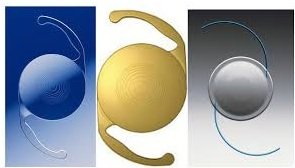
Opacification of natural crystalline lens (which is like lens of camera) is known as Cataract.
The natural lenses focus the light rays entering the eyes on the retina and help us to see clear images. However, with age the transparency of the lens diminishes and it starts becoming cloudy which is called as ‘CATARACT’ (Motibindu).
For people who have cataracts, seeing through cloudy lenses is a bit like looking through a frosty or fogged-up window.
Horizon Hospital has Best Cataract Specialist in Pune
Most cataracts develop slowly and don’t disturb patient’s vision. But with time cataracts can cause
- Blurring of vision
- Difficult to read- you may need brighter light for reading
- Difficult to drive a car (especially in night)
- Sensitivity to light and glare
- Colored halos
- Frequent changes in eyeglass
- Fading or yellowing of colors
- Double vision in a single eye (you may see double moon in night)
Initially proper lighting and eyeglasses can help to deal with cataracts. But if impaired vision interferes with your routine activities and you might need cataract surgery. Fortunately, cataract surgery is generally a safe, effective procedure.
Causes-
- Cataract is common in older age group> 60 years.
- Cataracts can also be caused by other eye conditions, past eye surgery, prolonged use of steroids, exposure to ultraviolet rays, post eye injury or medical conditions such as diabetes. Some inherited genetic disorders that cause other health problems, smoking, excessive use of alcohol can also increase your risk of cataracts.
- Sometimes cataract can present in children < 6month of age which is called as Congenital cataract (cause can be idiopathic, maternal infections etc) and if present after 6 month of age called as developmental cataract.
When to operate-
When your glasses can’t clear your vision, the only effective treatment of choice for cataracts is surgery.
At Horizon Hospital, our expert surgeons remove cataract surgically and it is replace with intraocular lens (IOL).
It can be done with small incision cataract surgery or phacoemulsification.
Why to Choose Horizon Hospital
At Horizon Hospital Dr Pratibha Patil Chumbale have taken special training in topical Microincision phacoemulsification surgeries in adults and pediatric cataract surgery (by lensectomy or Lens aspiration with PPC) from renowned Sankara Nethralaya. She has experience of performing more than 7000 adult cataract surgeries and More than 500 pediatric cataract and other surgeries. She has successfully operated 1 month old child with bilateral congenital cataract.
Microincision Phacoemusification surgery means
- NO PAIN, NO STITCH, NO INJECTION, NO PATCH cataract surgery
- Advanced technique of phacoemulsification is performed in 10 minutes under topical anesthesia by world class Alcon Phaco Machine
- Before surgery we do thorough eye check up and advise and help patients to select suitable intraocular Lens (Monofocal/Toric/ Multifocal IOL)
- We do follow strict preoperative ocular and systemic diagnostic investigations to avoid any intraoperative and postoperative complication
- We have laminar airflow operation theatre with HEPA filters

IOL Options available
Following Intraocular lens Options are available
- Nonfoldable IOL
- Foldable IOL
- Monofocal IOL
- Toric IOL
- Multifocal IOL
- Toric Multifocal IOL
How to Choose Correct IOL
To choose a correct IOL depends on the patients need.
Conventional Monofocal IOL corrects only distance vision and patient will need reading glasses after surgery
Toric IOL is needed in patients having astigmatism > 0.75 D to correct astigmatism and patient will need reading glasses after surgery
Multifocal IOL corrects both distance and near vision. Dependency on the glasses is reduced upto 95 % with this IOL
Toric Multifocal IOL corrects both distance and near vision and corneal astigmatism.
Postoperative Care-
- You need to wear protective glasses after surgery. You can wear dark goggles as your eyes may be sensitive to light after surgery.
- Avoid dust and water in the operated eye to avoid postoperative intraocular infection.
- You need to put eye medications as prescribed for 6 weeks
- Final glass prescription will be given after 3 weeks after thorough eye and retina check up.